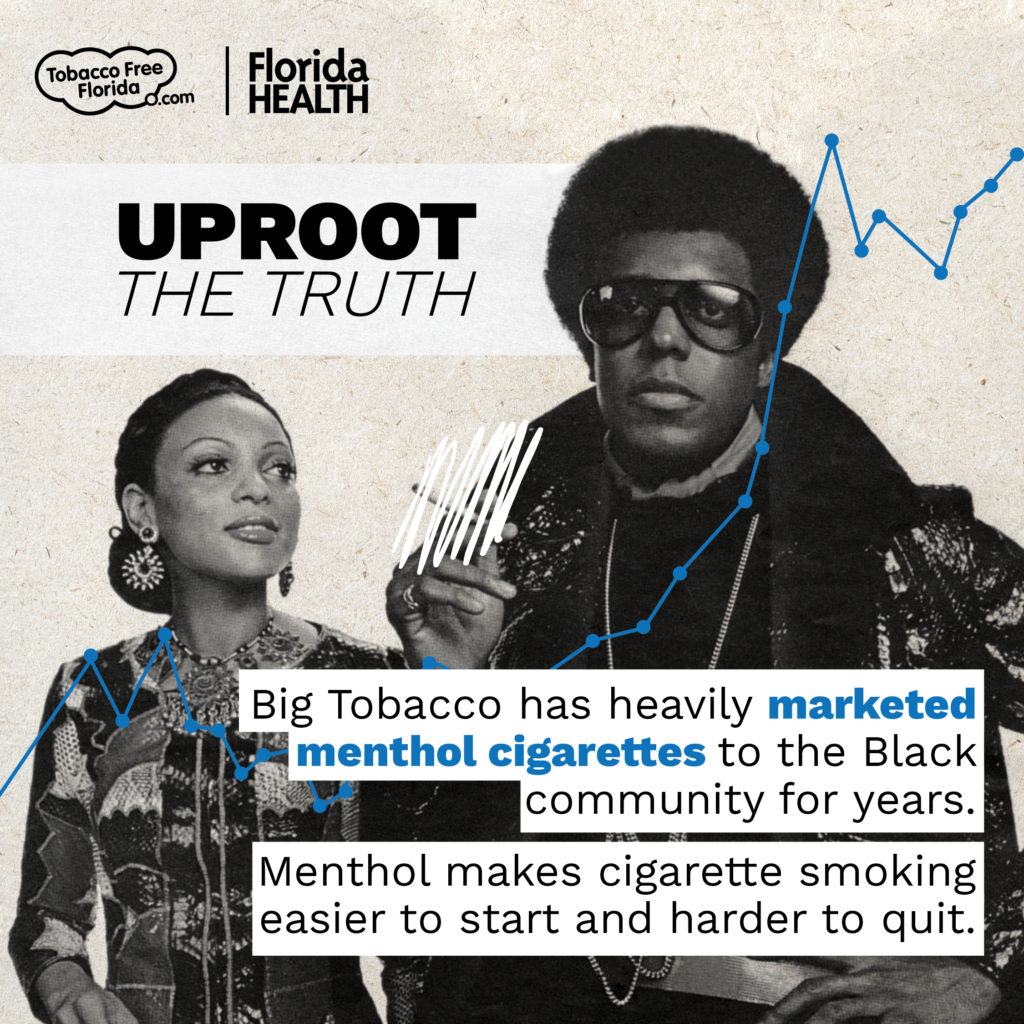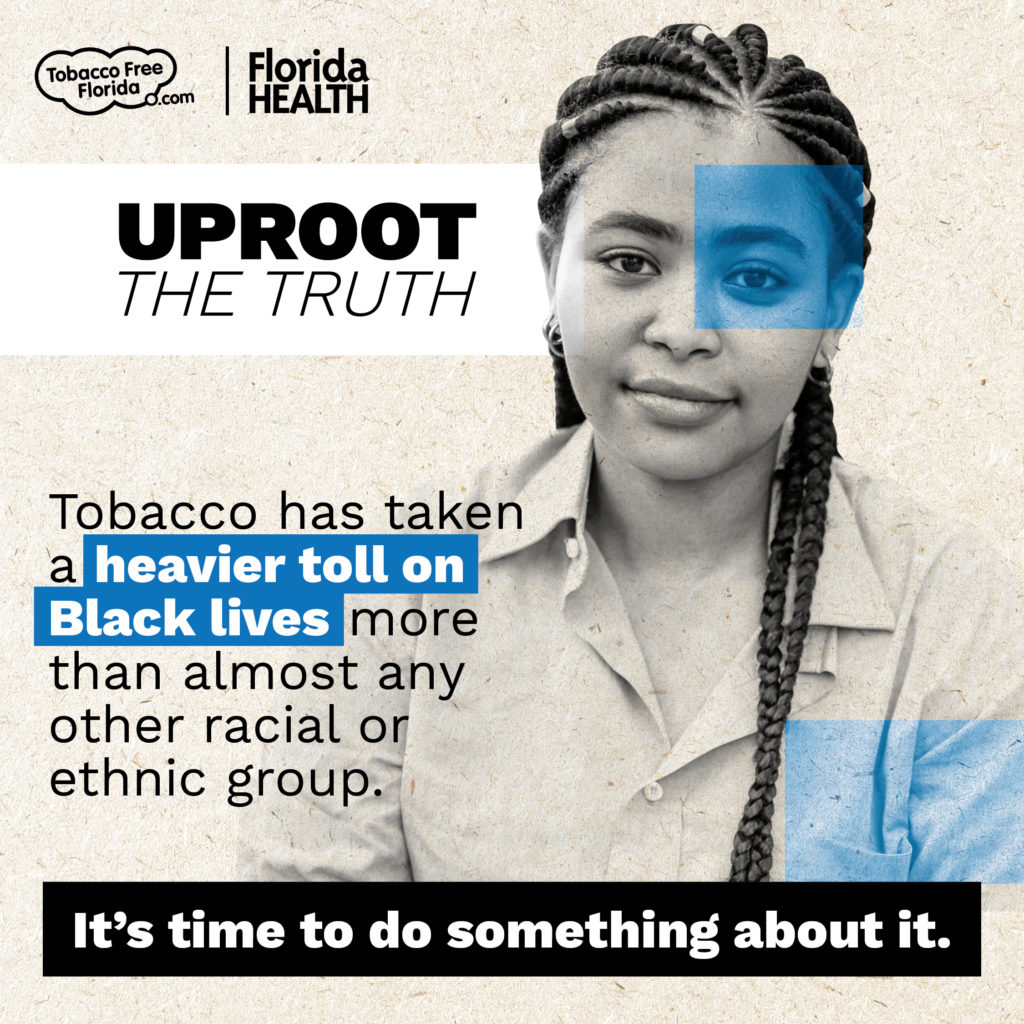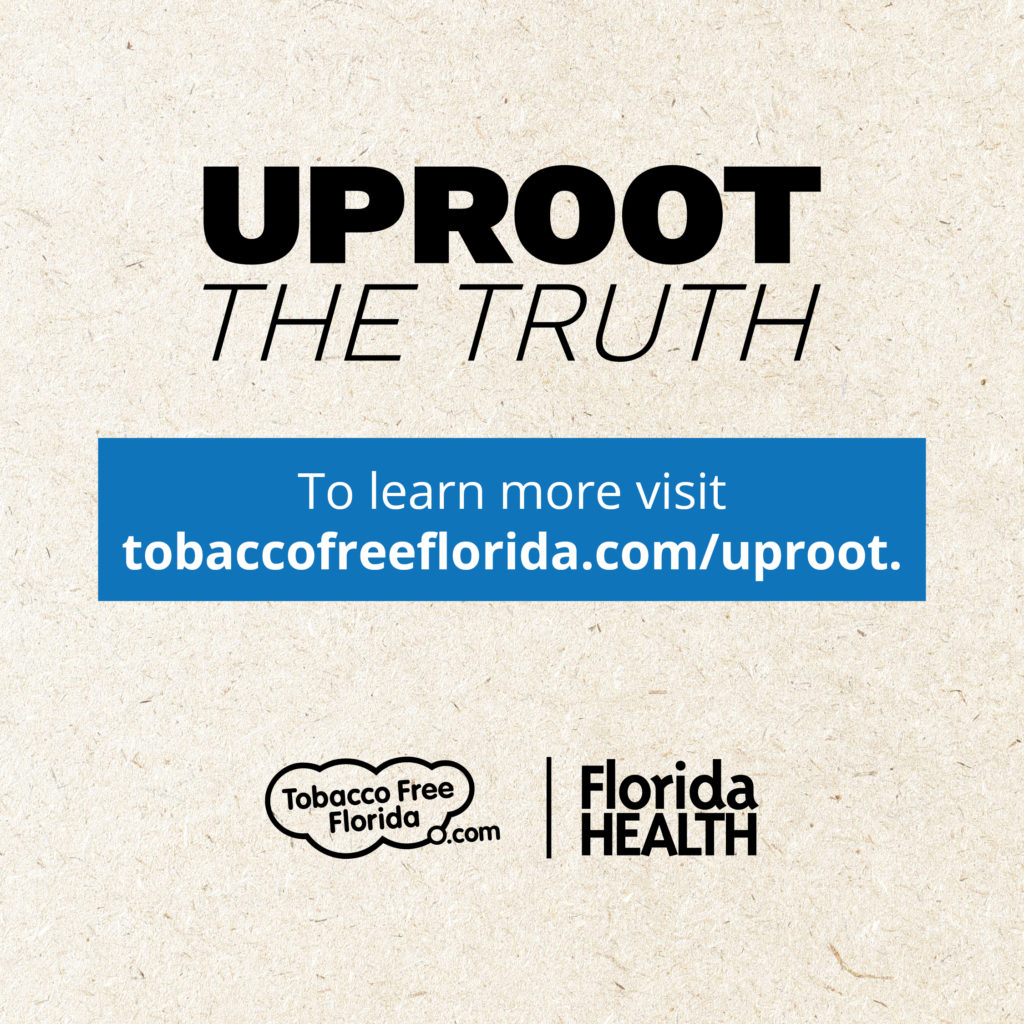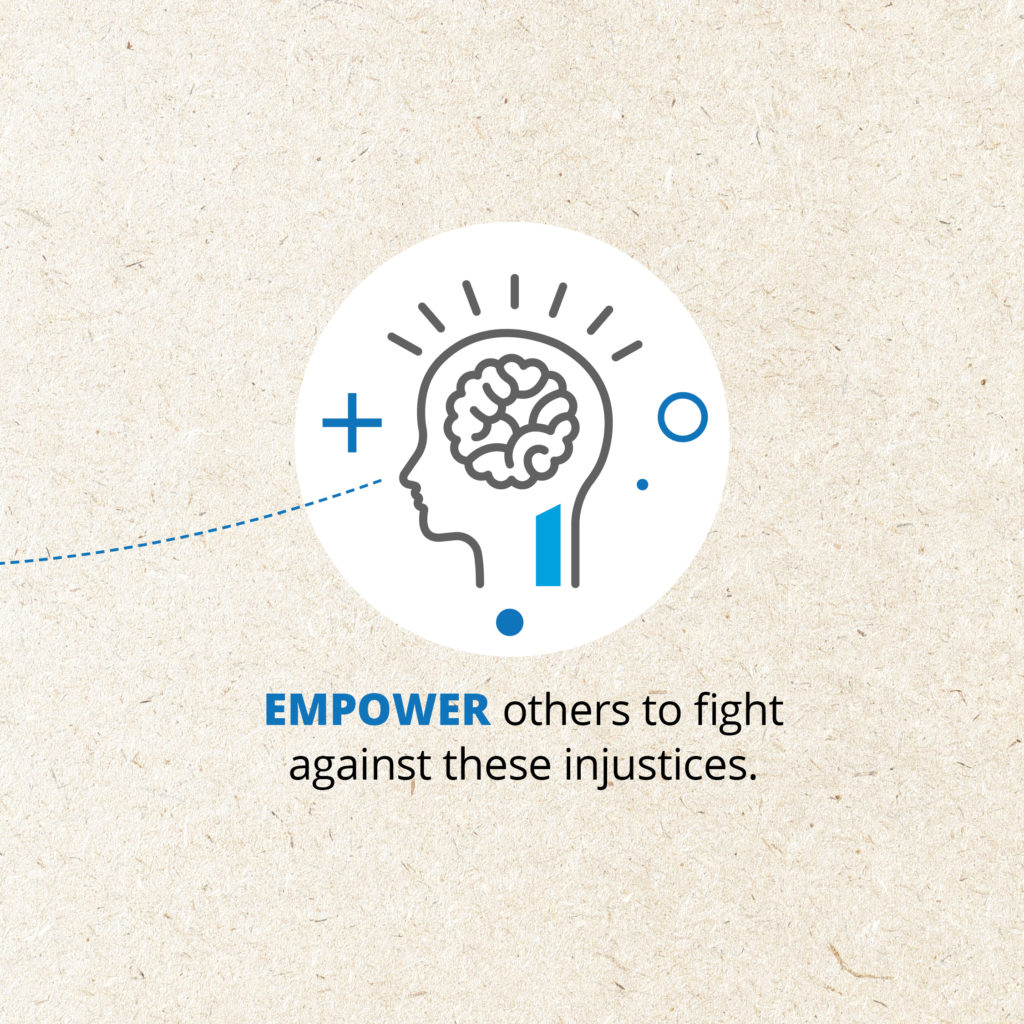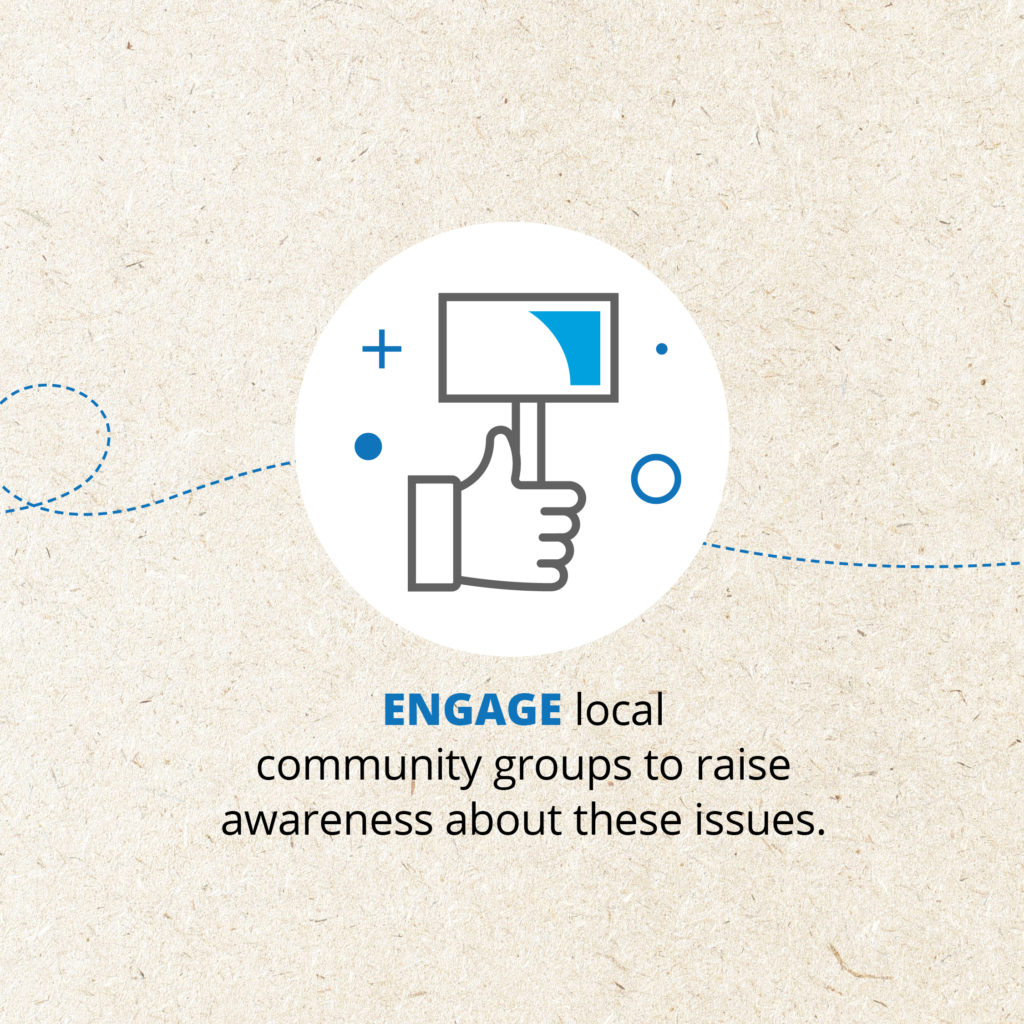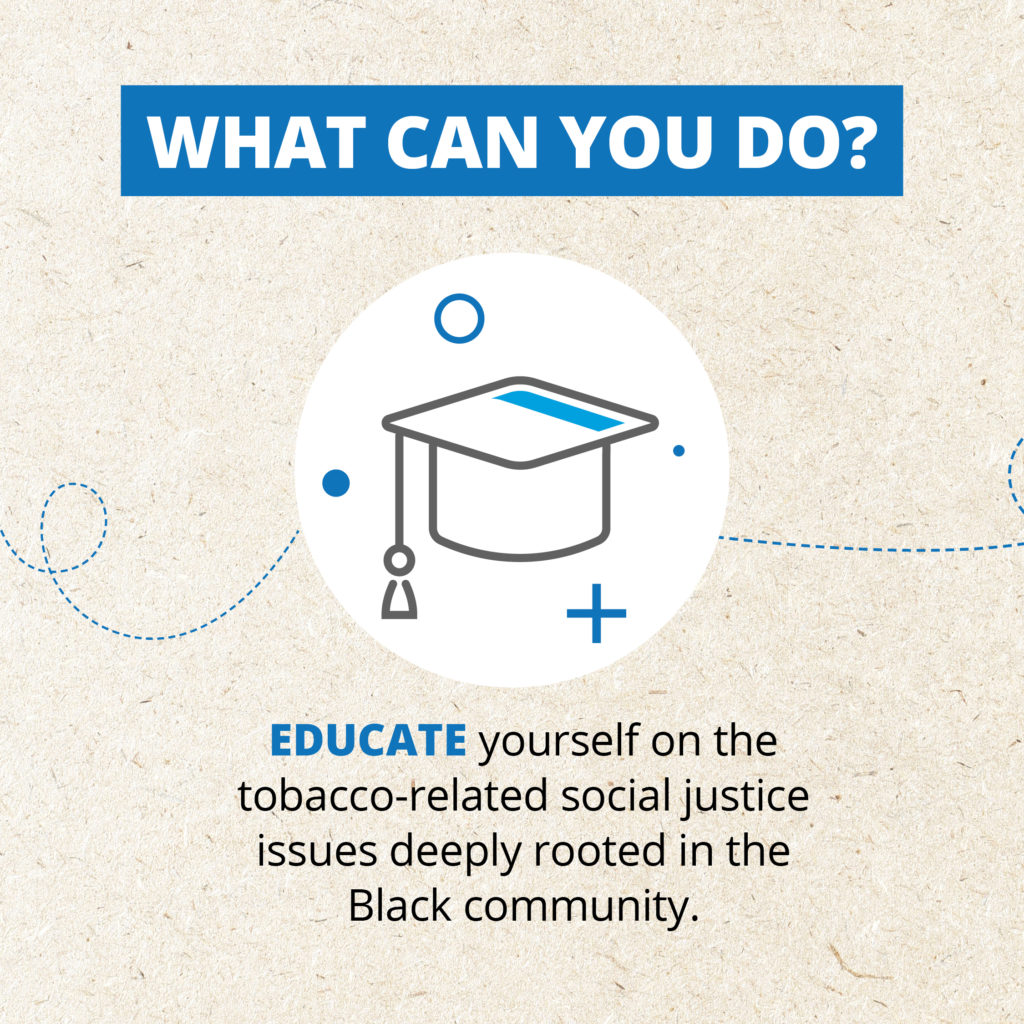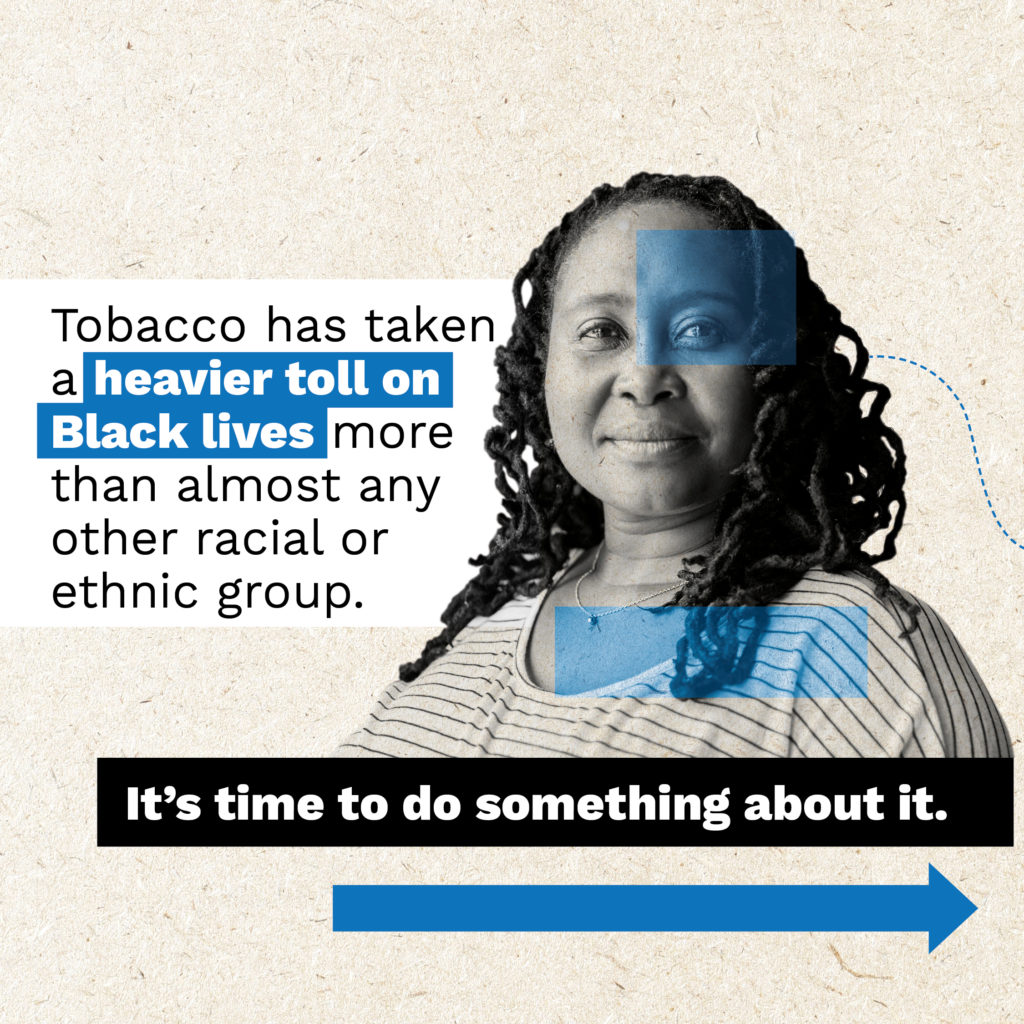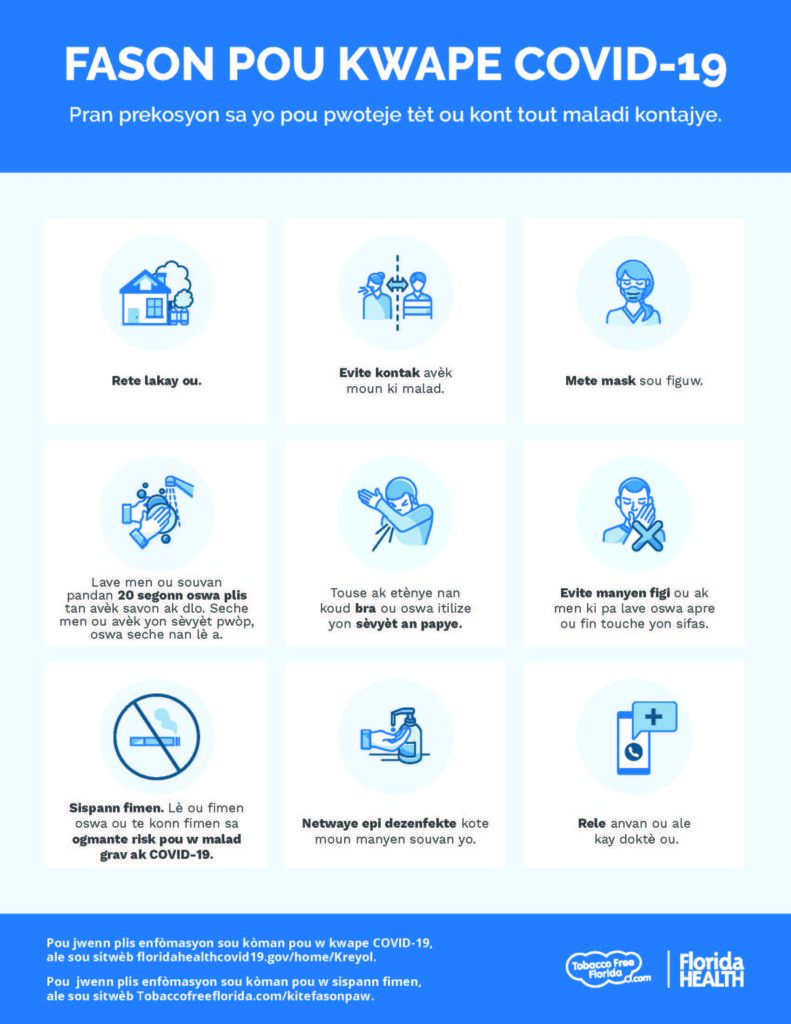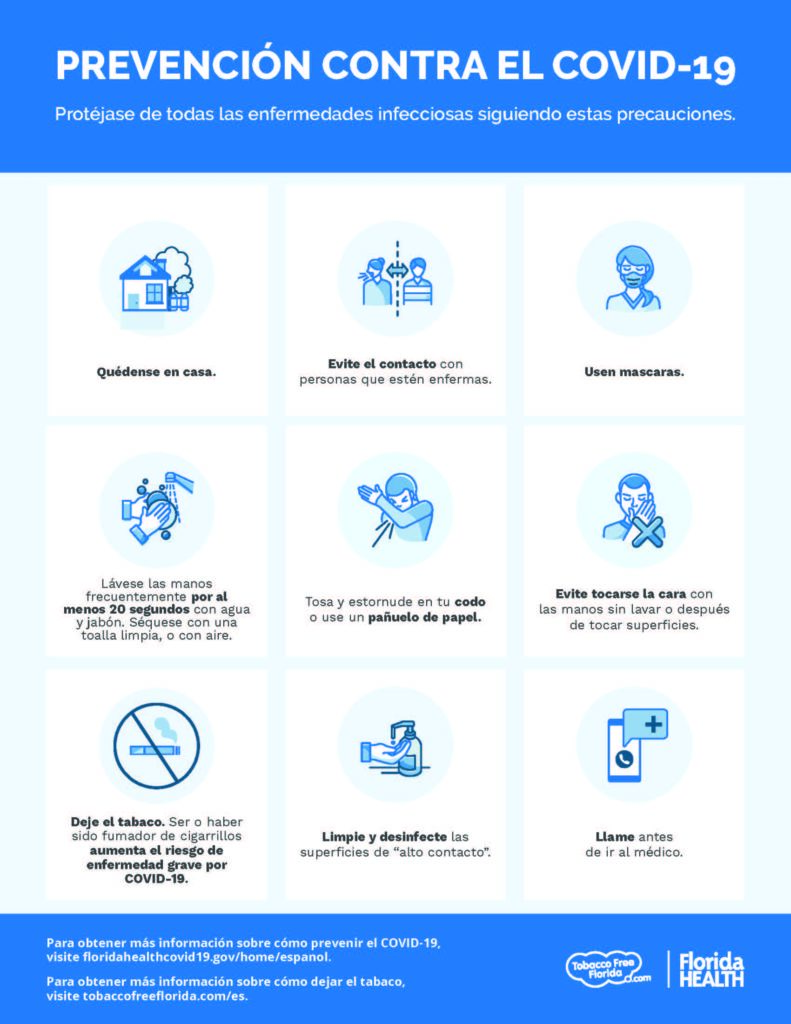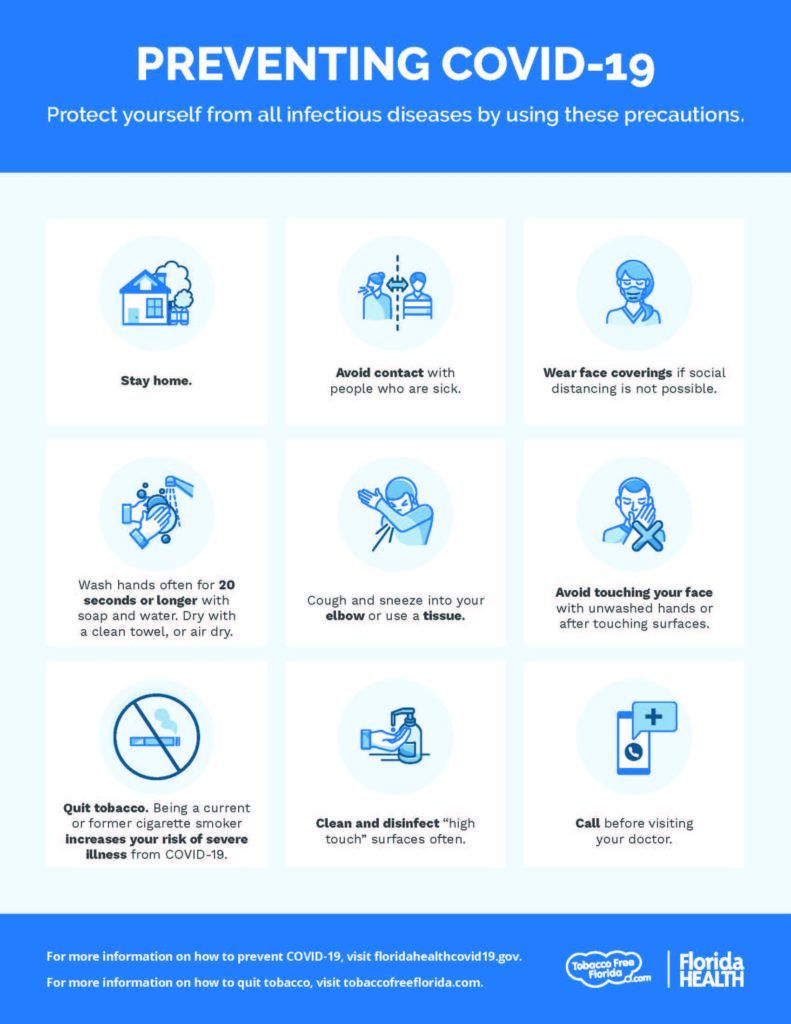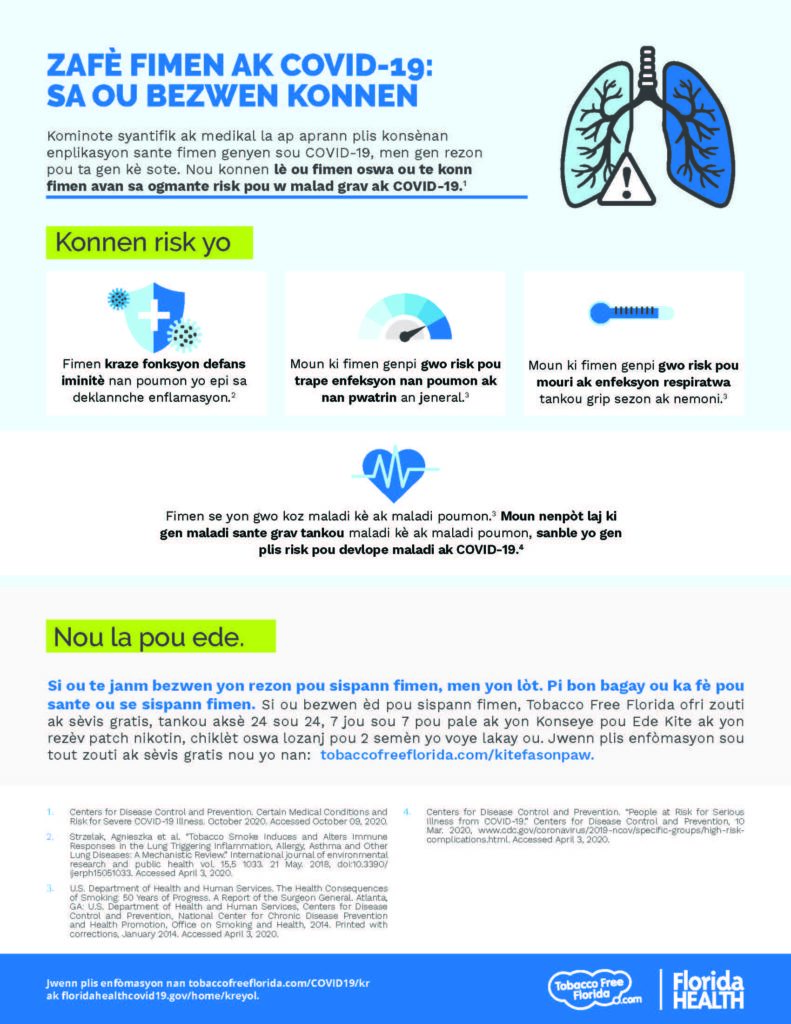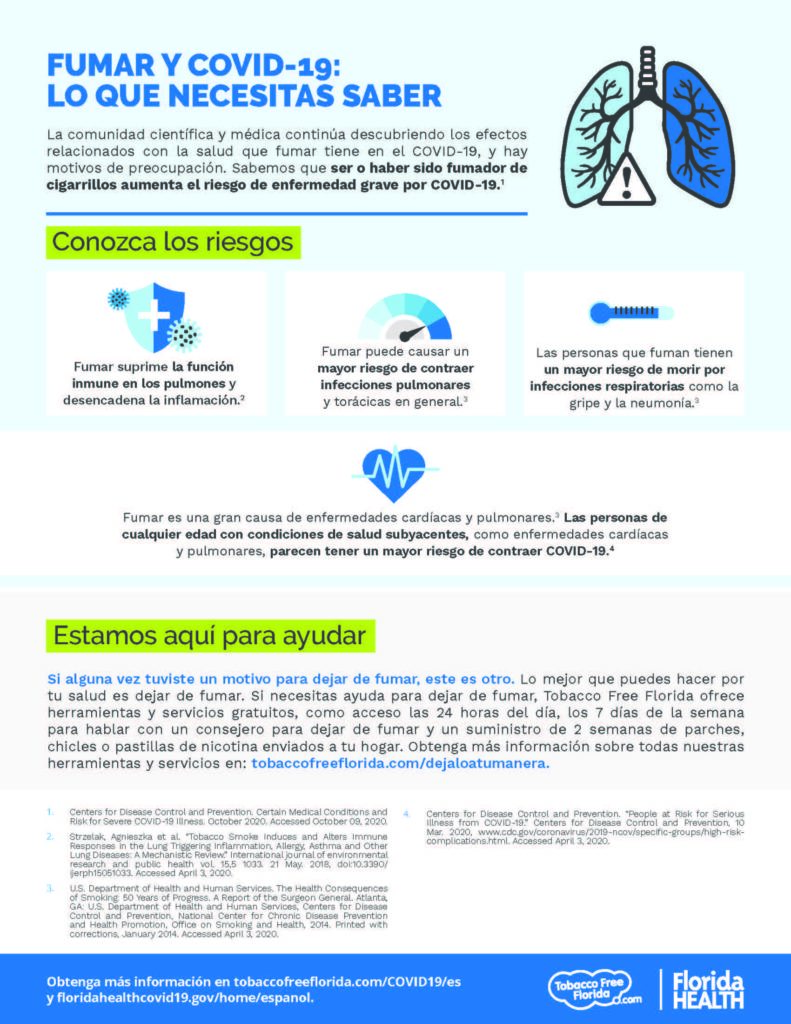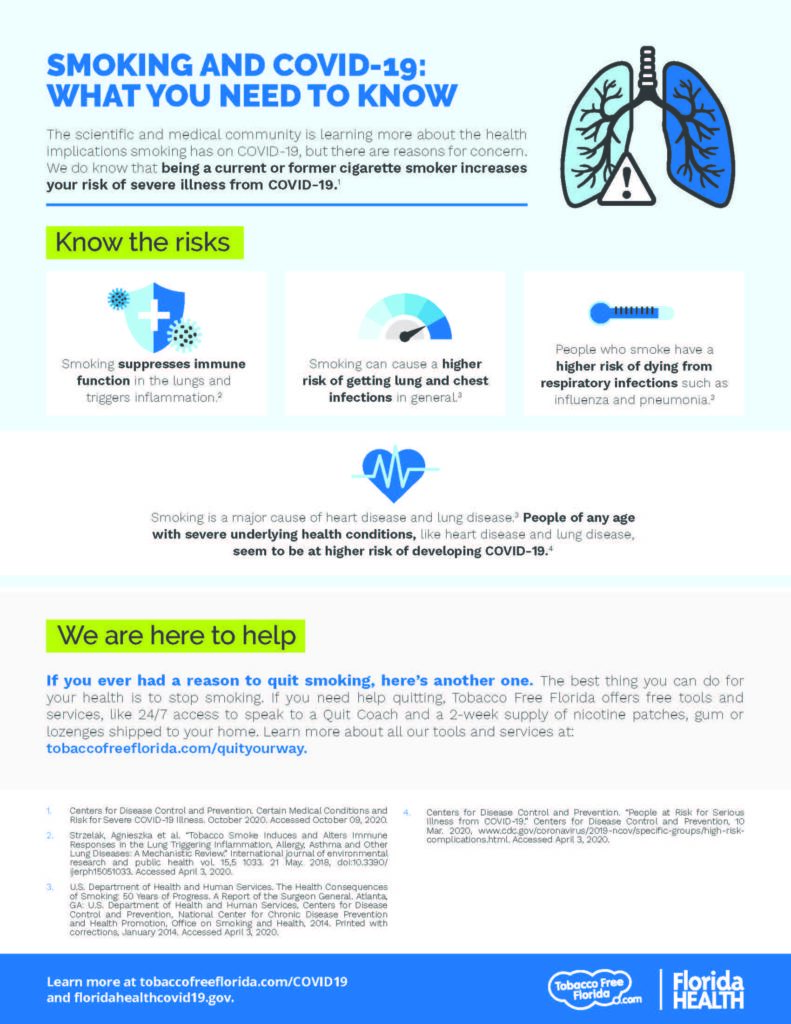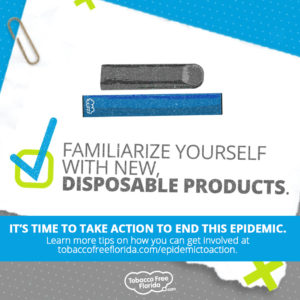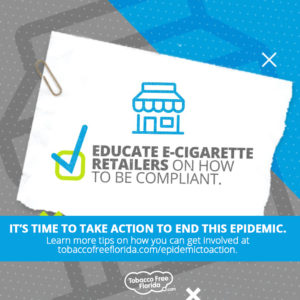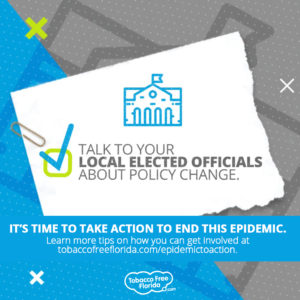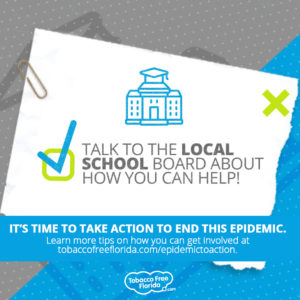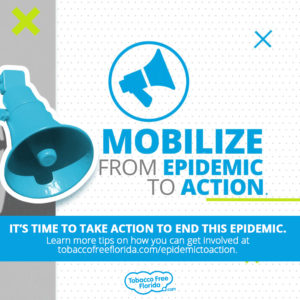Florida Clean Air Act
Protecting Floridians from secondhand smoke and e-cigarette aerosol is critical to keeping our communities healthy and vibrant, and the goal of the Florida Clean Air Act (FCAA) is to do just that.
The Florida Legislature enacted the FCAA in 1985 to protect people from the health hazards of secondhand smoke. In 2003, the Legislature passed a voter-approved amendment to prohibit smoking in workplaces that previously allowed smoking. This amendment was a major step toward preventing the serious health consequences and preventable deaths that can result from exposure to secondhand smoke. Because of that amendment, Florida law prohibits smoking in most public and private businesses, including restaurants. While there are few exceptions, including standalone bars, the amendment makes it possible for many Floridians to go about their daily lives without being exposed to secondhand smoke.
Effective July 1, 2019, a new voter-approved law took effect under the FCAA that bans vaping and use of e-cigarettes in workplaces. This addition to the FCAA does not restrict use of e-cigarettes and vaping devices inside private residences, retail tobacco shops, standalone bars or hotel rooms where smoking is allowed.
The Issue
Secondhand tobacco smoke is a serious health issue in workplaces. Tobacco smoke contains more than 7,000 chemicals, 1 of which hundreds are toxic and about 70 can cause cancer. 2 There is no risk-free level of secondhand smoke exposure. In fact, even brief exposure can be harmful to your health. 3, 4, 5
The long-term health effects of vaping are still unknown, but we do know that e-cigarette aerosol – aka vapor – is not harmless. E-cigarette aerosol is NOT harmless “water vapor,” as many mistakenly believe. 6 The aerosol that users breathe from an e-cigarette device and exhale can contain harmful and potentially harmful substances, including cancer-causing chemicals and heavy metals such as nickel, tin, and lead. 7 Some of the ingredients in e-cigarette aerosol could be harmful to your lungs.
Advocacy
Businesses do not always comply with the law, which can lead to serious health consequences, particularly for children, people with existing health conditions and the elderly, who are more vulnerable to the effects of secondhand smoke exposure.
By reporting a violation of the law, you can play an important role in ensuring that your loved ones are protected from toxic secondhand smoke and vapor released from e-cigarettes.
To report a violation of the FCAA:
- Call: 1-800-337-3742
- Email: [email protected]
- Mail: 4052 Bald Cypress Way, Bin C-23, Tallahassee, Florida 32399-1743
The following information is required to process a complaint:
- Name of workplace where violation is occurring
- Workplace mailing address, city, county and zip code
- Nature of the violation (Example: smoking in an enclosed indoor workplace)
- If available, provide a telephone number and name of the person in charge of the workplace
Blog Post
Secondhand Smoke
Infographic
Vaping and Youth
Fact Sheet
Vaping and Youth
Fact Sheet
FCAA
1 U.S. Department of Health and Human Services. How Tobacco Smoke Causes Disease: The Biology and Behavioral Basis for Smoking-Attributable Disease: A Report of the Surgeon General. Atlanta, GA: U.S. Department of Health and Human Services, Centers for Disease Control and Prevention, National Center for Chronic Disease Prevention and Health Promotion, Office on Smoking and Health, 2010.
2 U.S. Department of Health and Human Services. A Report of the Surgeon General: How Tobacco Smoke Causes Disease: What It Means to You. Atlanta: U.S. Department of Health and Human Services, Centers for Disease Control and Prevention, National Center for Chronic Disease Prevention and Health Promotion, Office on Smoking and Health, 2010.
3 U.S. Department of Health and Human Services. The Health Consequences of Smoking—50 Years of Progress: A Report of the Surgeon General. Atlanta: U.S. Department of Health and Human Services, Centers for Disease Control and Prevention, National Center for Chronic Disease Prevention and Health Promotion, Office on Smoking and Health, 2014.
4 U.S. Department of Health and Human Services. A Report of the Surgeon General: How Tobacco Smoke Causes Disease: What It Means to You. Atlanta: U.S. Department of Health and Human Services, Centers for Disease Control and Prevention, National Center for Chronic Disease Prevention and Health Promotion, Office on Smoking and Health, 2010.
5 National Toxicology Program. Report on Carcinogens, Fourteenth Edition External. Research Triangle Park (NC): U.S. Department of Health and Human Services, Public Health Service, 2016 (Accessed 2019 March 28).
6 Centers for Disease Control and Prevention (CDC). “Quick Facts on the Risks of E-cigarettes for Kids, Teens, and Young Adults.” CDC Office on Smoking and Health, National Center for Chronic Disease Prevention and Health Promotion. 3 Dec 2018. www.cdc.gov/tobacco/basic_information/e-cigarettes/Quick-Facts-on-the-Risks-of-E-cigarettes-for-Kids-Teens-and-Young-Adults.html (Accessed 11 March 2019).
7 US Department of Health and Human Services. E-cigarette Use Among Youth and Young Adults: A Report of the Surgeon General. Atlanta, GA: US Department of Health and Human Services, CDC; 2016. (Accessed July 27, 2018).



